How to install Windows 10 on your Mac mini with an external drive
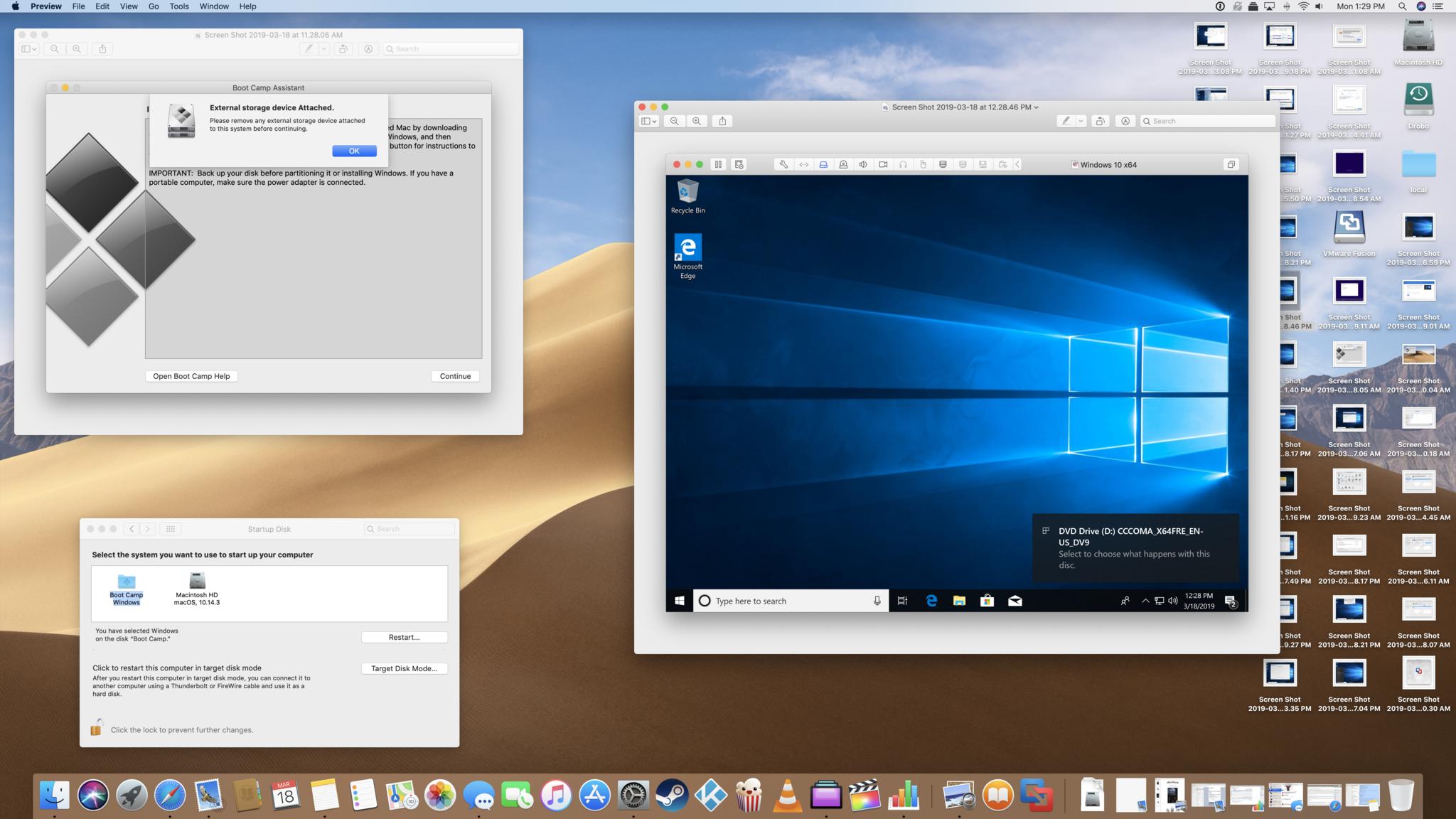
Apple is trying to get us to dongle attach 'all the things' but what happens when that philosophy doesn't jive with all of your computing needs? One such situation is when wanting to run Windows 10 natively on your Mac (in my case my Mac mini). The 'normal' method would be to use Boot Camp to repartition your internal hard drive to make room for Windows 10. However, in some instances, repartitioning may not be an option. For example due to disk size limitations. Attaching a Thunderbolt 3 connected drive is the obvious solution but Windows 10 does NOT like to be installed onto detachable devices. Here's how to force the install of Windows 10 onto your externally attached drive!
What you'll need
Hardware
Of course you'll need an externally connected drive. I went with a 240GB SATA SSD ($30) that I placed into Thunderbolt 3 capable external SATA enclosure ($9).
Software
First up we'll need an ISO copy of Windows 10.
- Navigate to the Windows 10 Download site.
- Select Windows 10 as the edition.
- Click Confirm.
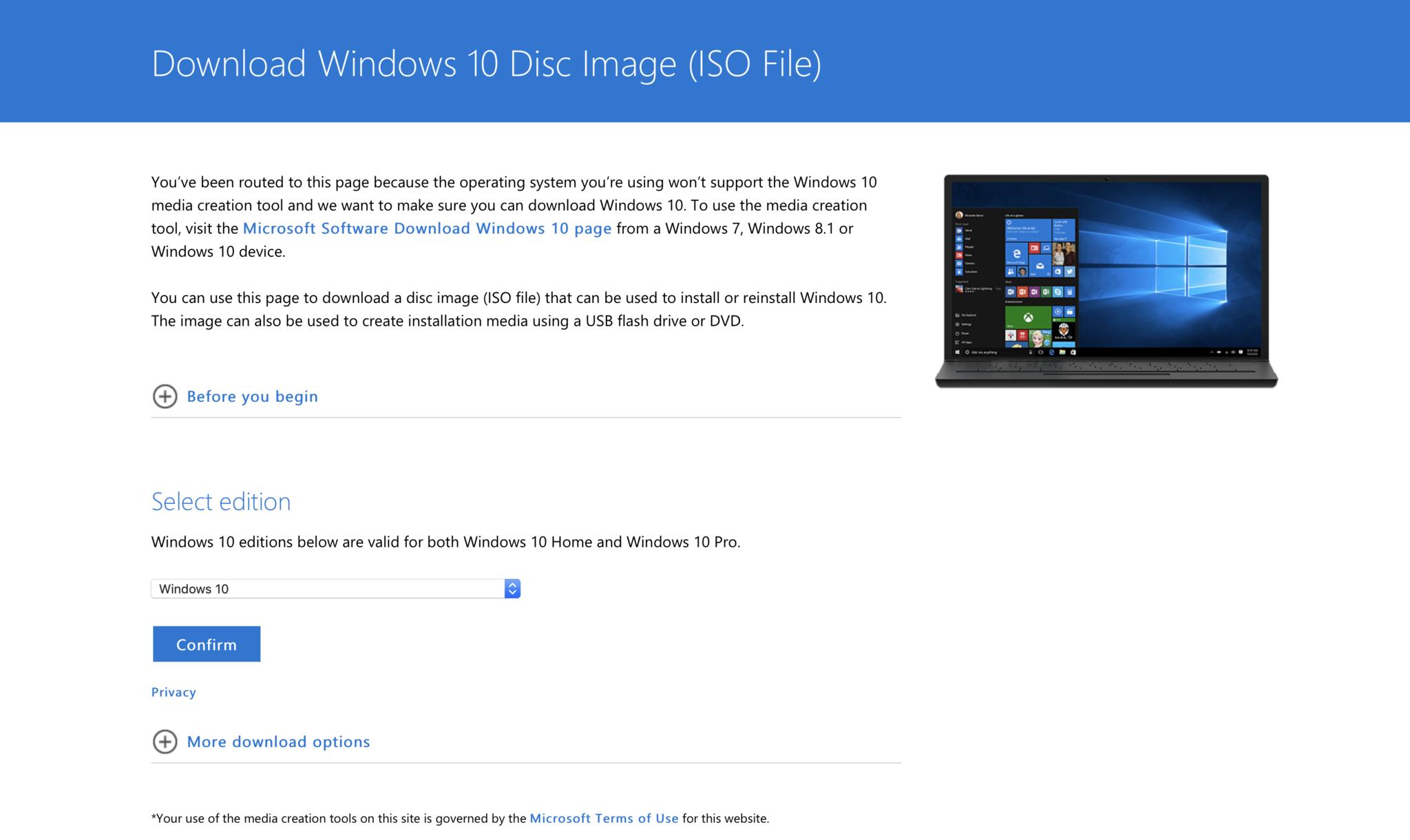
- Select the Language you want.
- Click Confirm.
- Click the 64-bit Download.
- And the download will now begin.
Next, you can download the 30 day free trial of VMware Fusion.
- Navigate to the VMware Fusion download site.
- Click Download Now.
- Allow the download to complete.
Next, we'll need to get a Windows utility called Win-to-USB. Although there is a free version, installing Windows latest 1809 October update will require use to but the non-free version ($30). You are free to use the free version for older Windows 10 ISO's suck as 1803.
- Navigate to the Win-to-USB site.
- Select Upgrade to buy a license. (or if using an older Windows 10 ISO simply click Download for the free version).
- Click Download to get the software.
Finally, we'll need the Boot Camp Windows support files.
- Start Boot Camp Assistant from Spotlight.
- From the menu bar at the top of your screen click Action.
- Select Download support software.
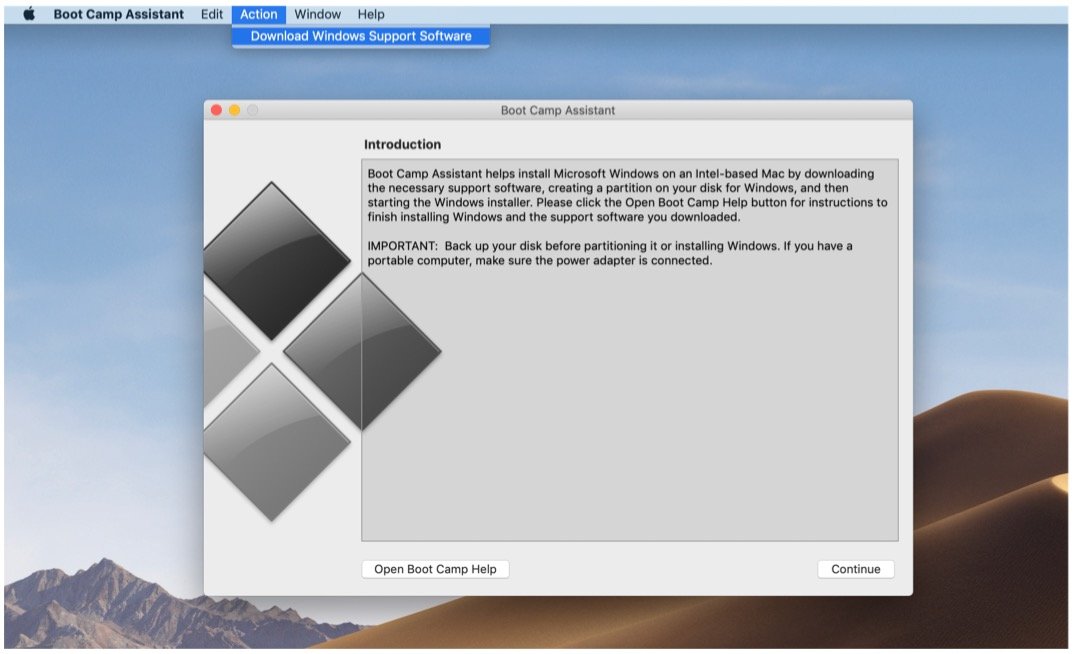
- Choose a Download location and click Save.
The setup
The external drive
- Attach your external drive to your Mac.
- Start Disk Utility from Spotlight.
- Select your external drive.
- Click Erase.
- Rename the drive to Boot Camp.
- Ensure that the Format is Mac OS Extended (Journaled).
- Ensure the Scheme is set to GUID Partition Map.
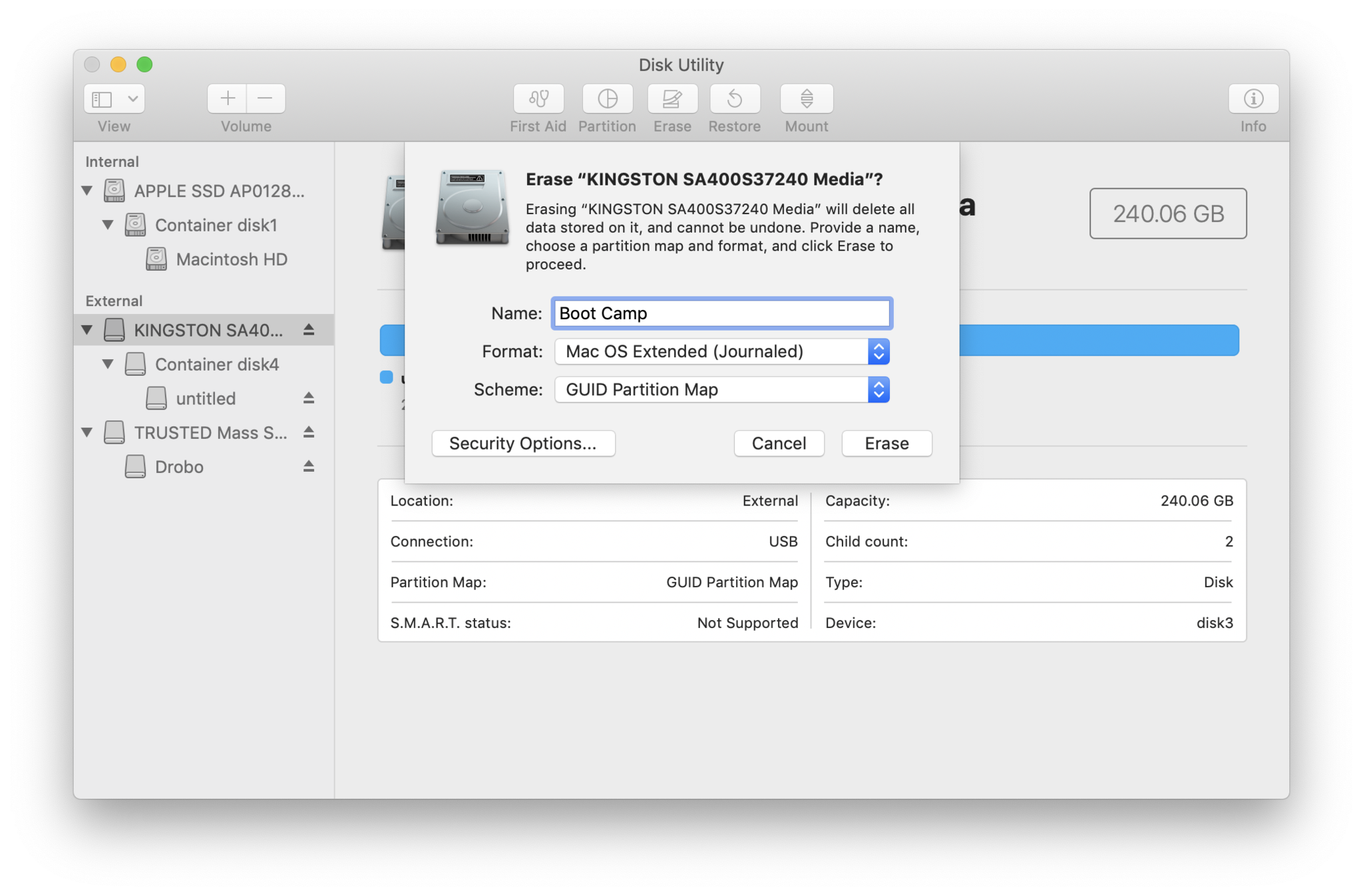
- Click Erase.
VMware Fusion
- Install the VMware Fusion software we downloaded earlier by double clicking the DMG file.
- Double click the Installer.
- Enter your Password.
- Agree to the user agreement and select *try VMware Fusion for 30 days**.
- Create a New Virtual Machine.
- Drag and drop the Windows ISO file you downloaded earlier onto the VMware Fusion Window.
- Click Continue.
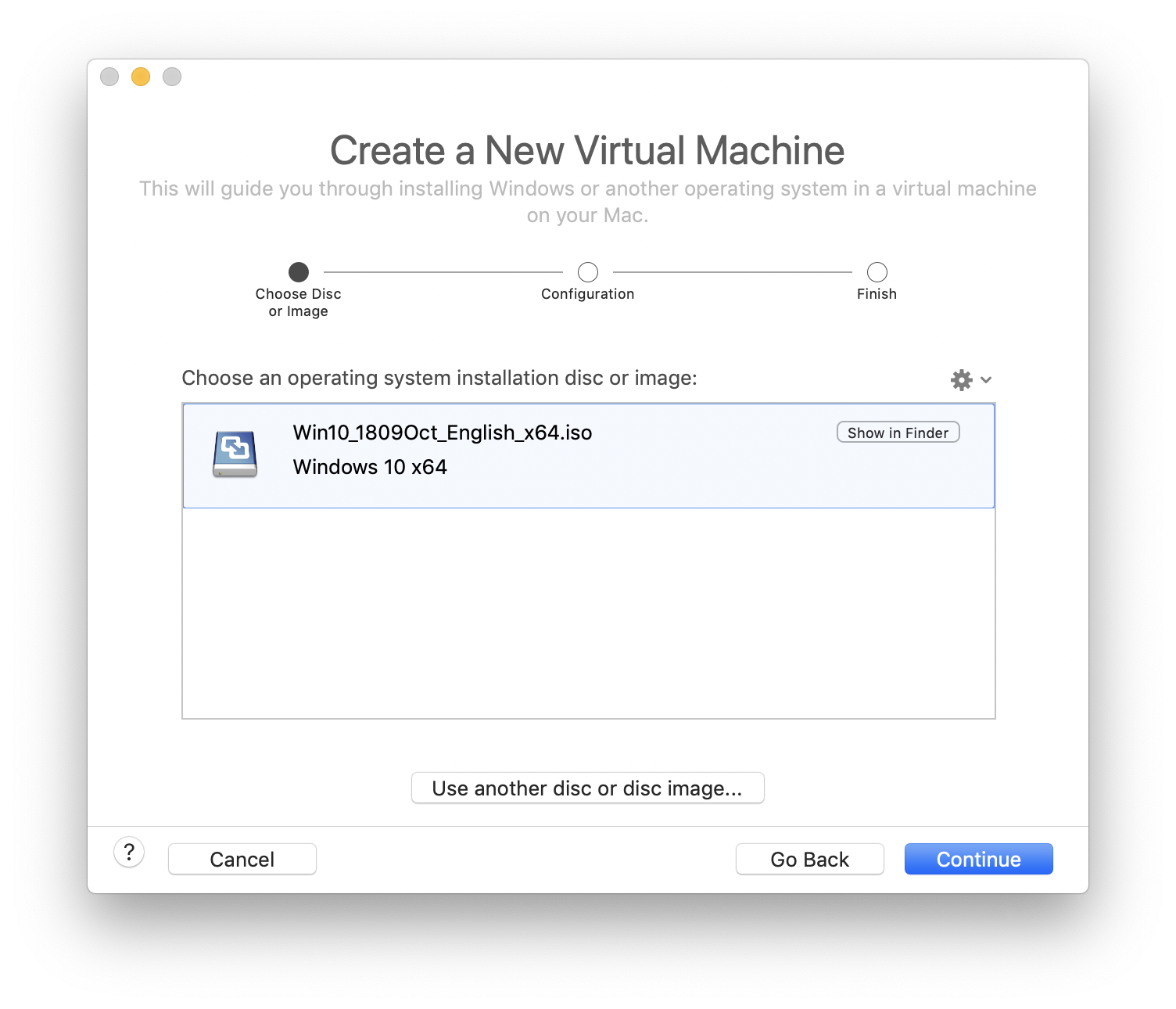
- Select your Windows Version to install. I use Windows 10 Home.
- Click Continue.
- Click Continue without key.
- Select More isolated.
- Click Continue.
- Click Finish.
- Click Save to allow the software to install Windows 10 in a virtual machine.
- Allow the Virtual Machine to boot into a Windows 10 desktop.
Windows 10 VM
Your Windows 10 VM should now be up and running. We will now prepare the external drive and put a basic installation of Window s10 on it.
Master your iPhone in minutes
iMore offers spot-on advice and guidance from our team of experts, with decades of Apple device experience to lean on. Learn more with iMore!
- Click the Wrench Icon to start VM Settings.
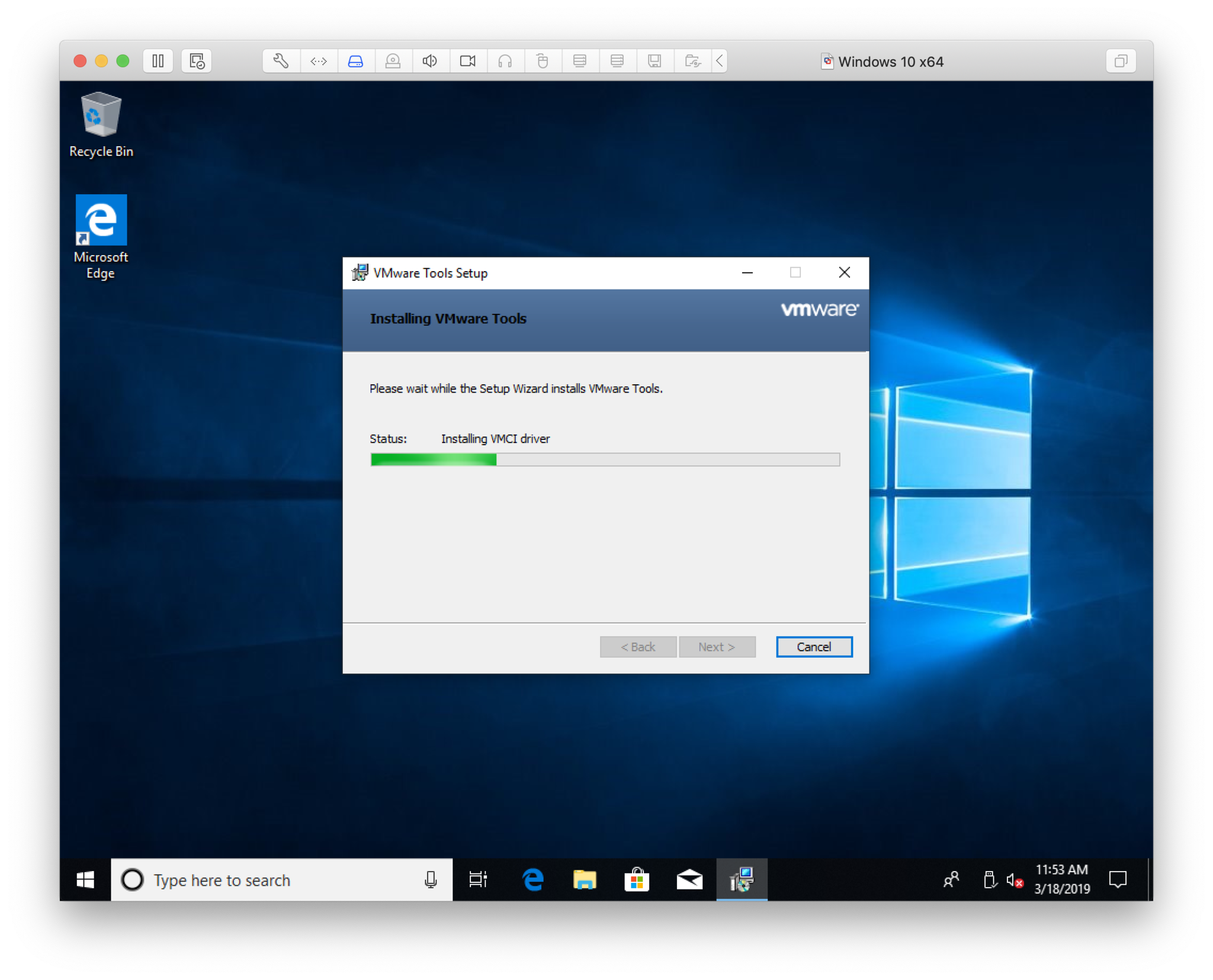
- Click USB & Bluetooth.
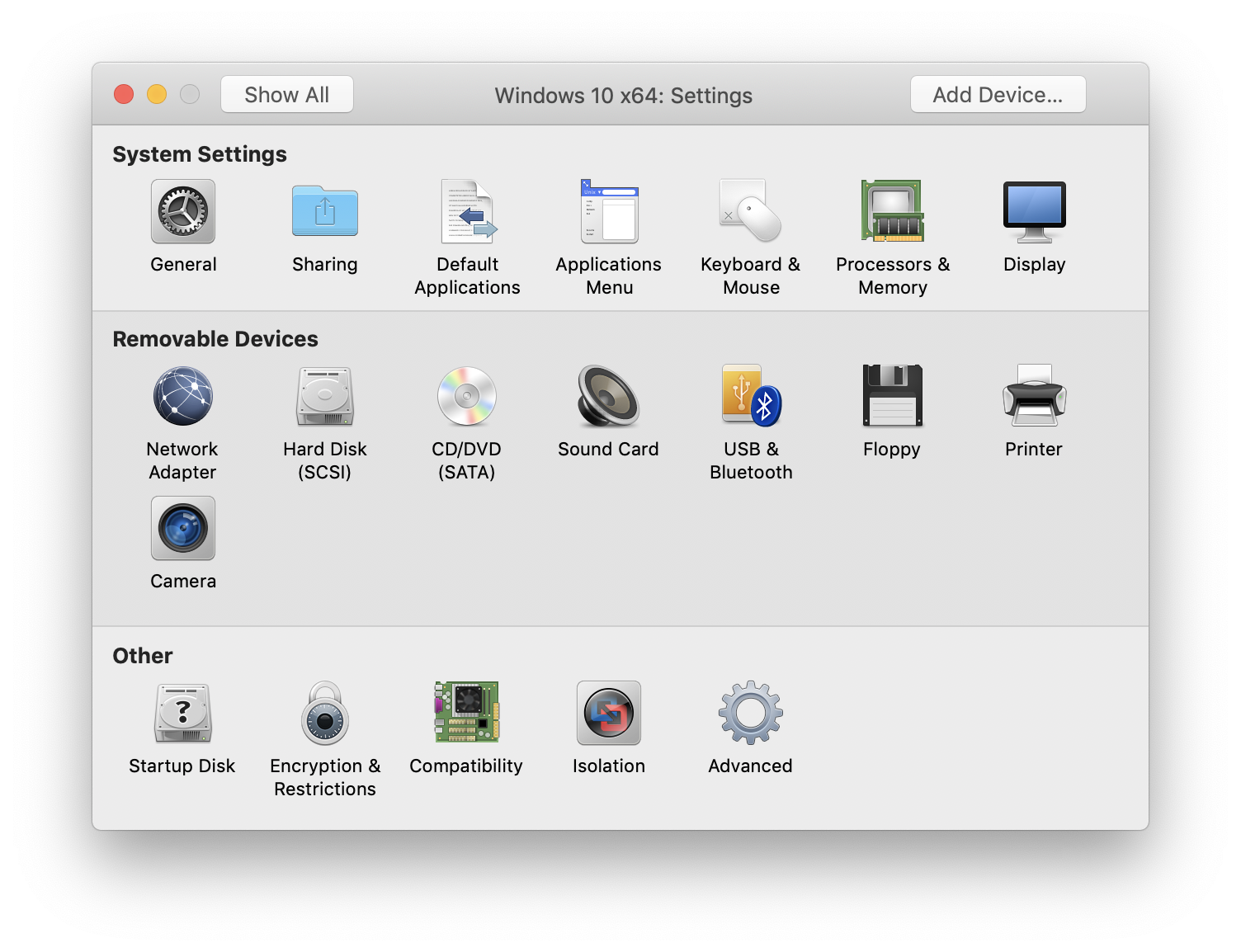
- Check your external drive (here called Boot Camp).
- Click OK.
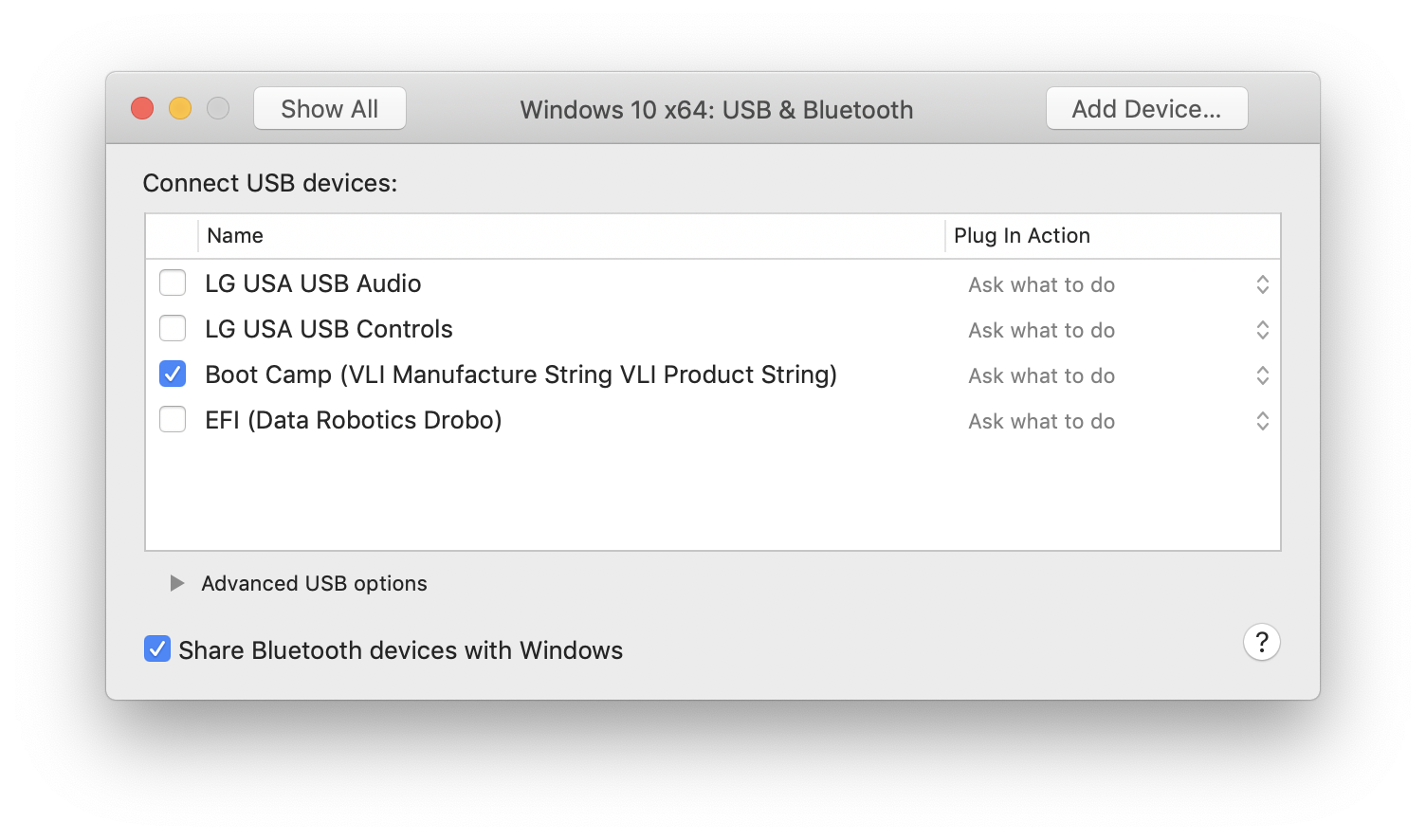
- Right-click the Windows Icon.
- Select Disk Management.

- Right-Click the Primary Partition of the attached drive.
- Select Delete Volume.
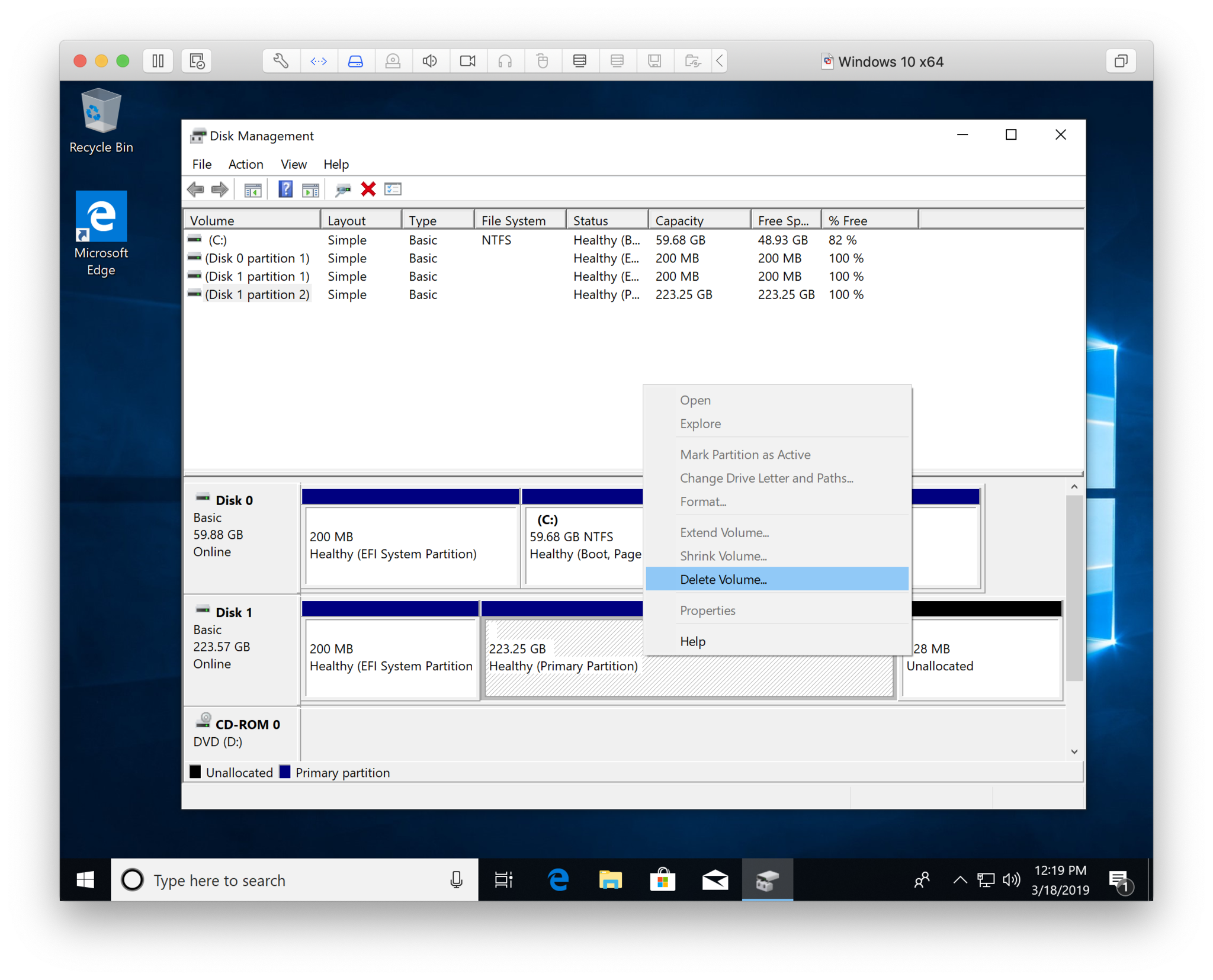
- Click Yes.
- Right-Click on the new Unallocated disk partition.
- Select New Simple Volume.
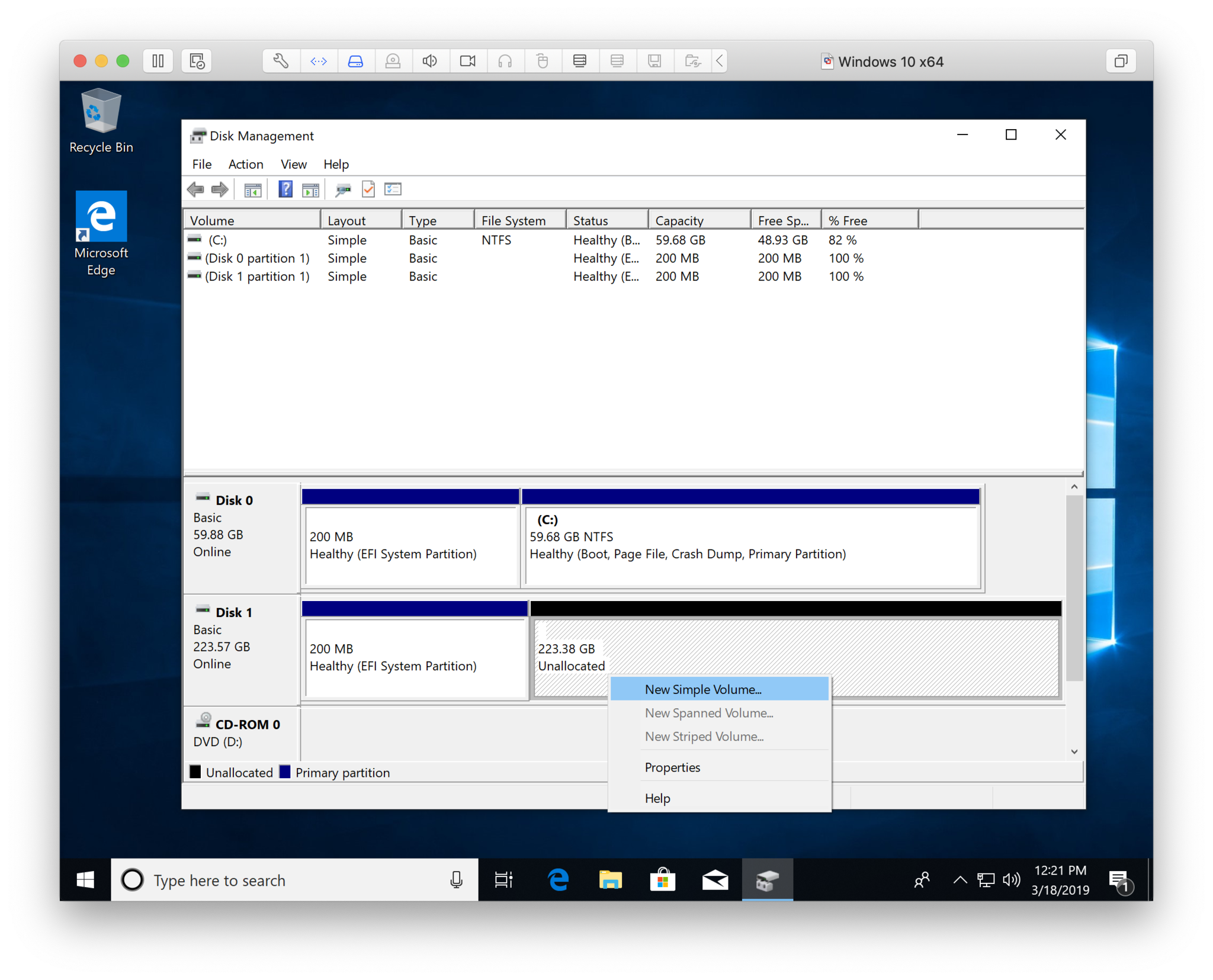
- Click Next.
- Click Next again.
- Again click Next.
- Change the Volume Label to Boot Camp.
- Click Next.
- Click Finish.
Next, we need to attach our Windows ISO to the Windows 10 VM.
- From the menu bar select Virtual Machine > CD/DVD SATA > Choose Disk or Disk Image.
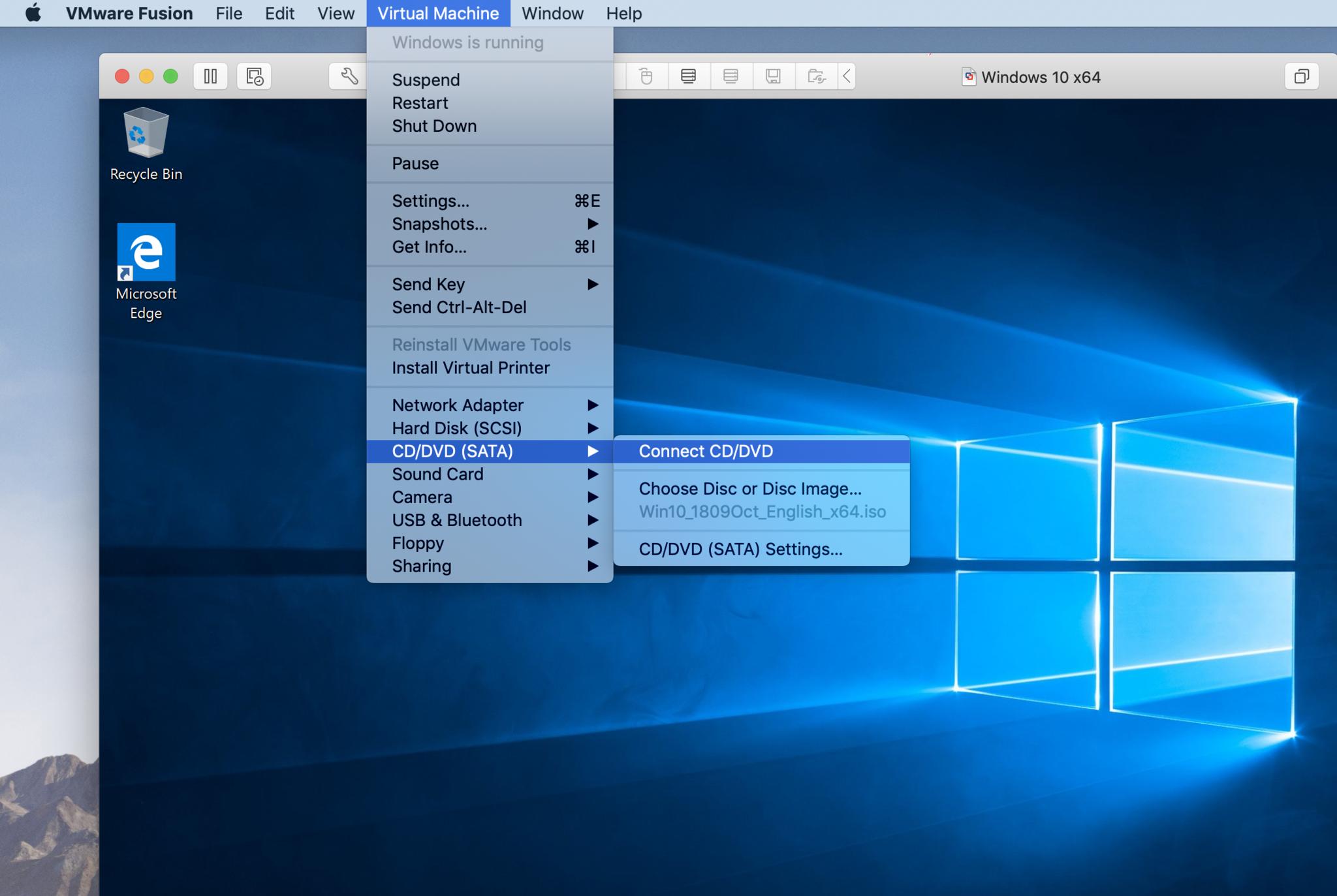
- Select the Windows 10 ISO we downloaded.
- Click Open.
- From the menu bar select Virtual Machine > CD/DVD SATA > Connect CD/DVD.
Move files into the VM
- Drag and drop the WinToUSB_Free.exe file we downloaded earlier into the Windows 10 VM window.
- Drag and drop the WindowsSupport file we downloaded from Boot Camp earlier into the Windows 10 VM window.
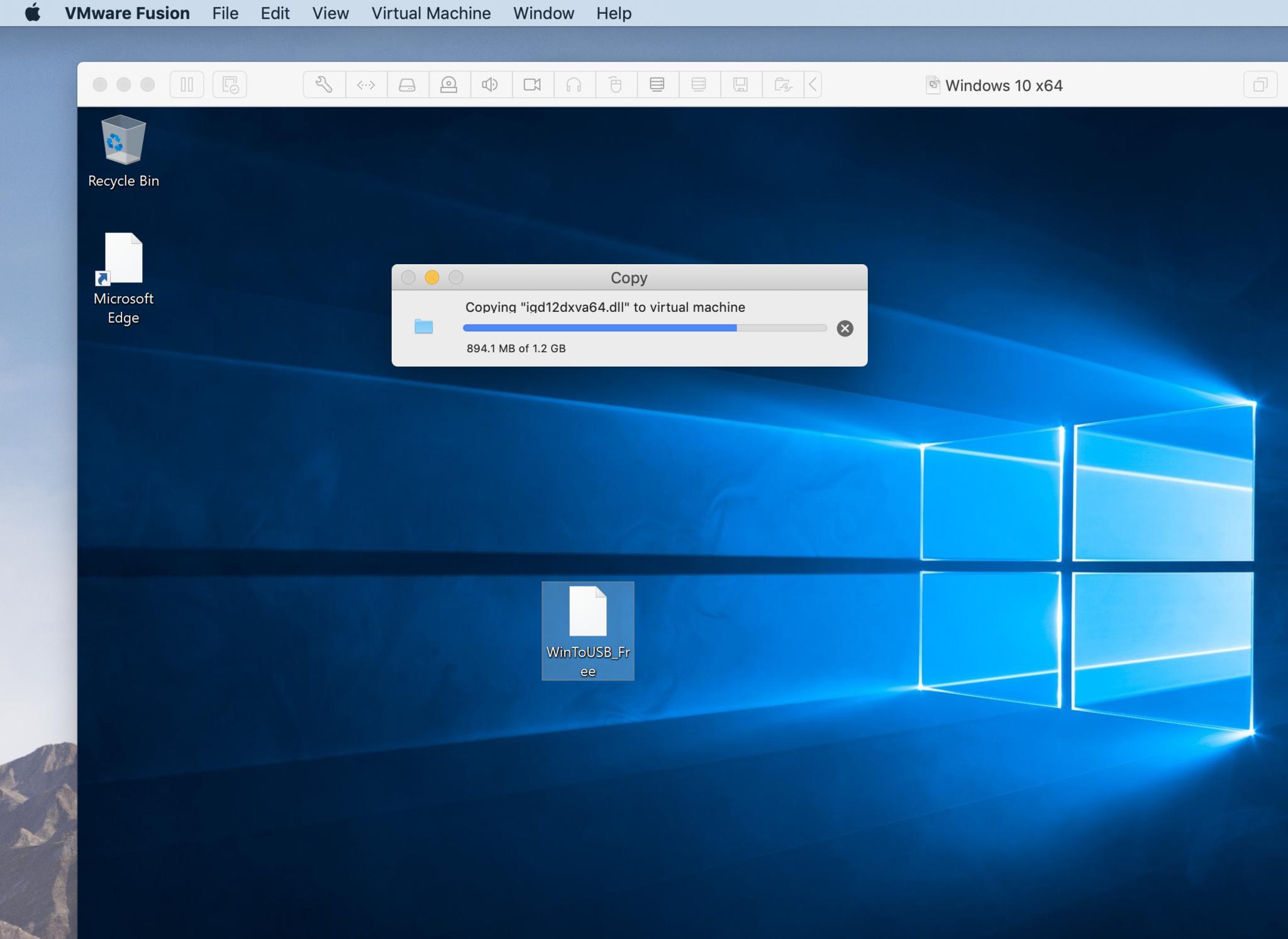
Install Win-to-USB in the Windows 10 VM
- Double-Click the WinToUSBFree.exe in Windows.
- Install Win-to-USB with all of the defaults in your selected language.
Next, we run Win-to-USB.
- Double-Click the desktop Icon for Win-to-USB.
- If you bought a License to install 1809 October update, click Upgrade now.
- Enter your license key and click Register.
- Restart Win-to-USB.
- Select the CD/DVD icon.
- From the drop down list select your attached Windows 10 ISO.
- Select the version of Windows 10 you wish to install.
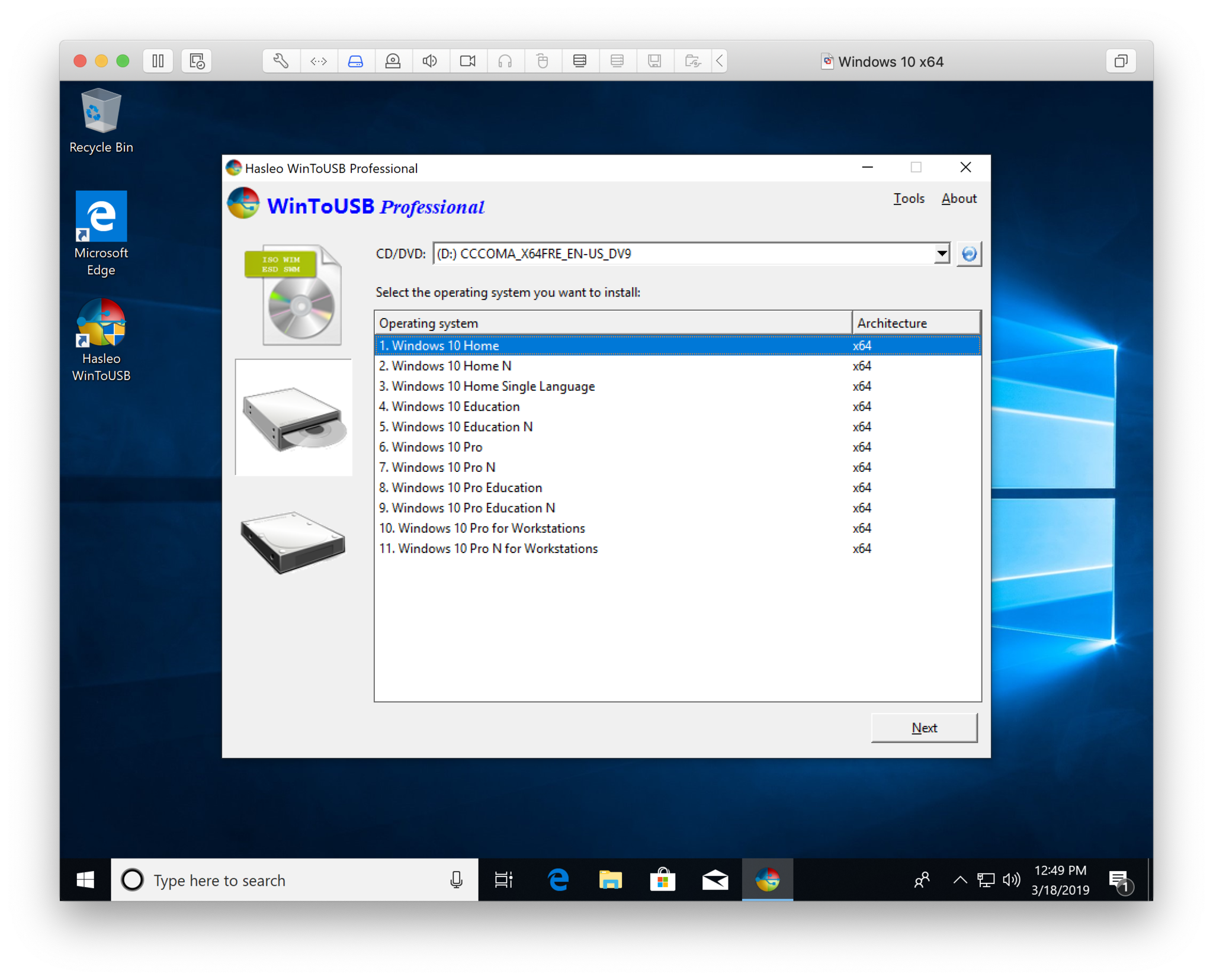
- Click Next.
- From the drop down list select your attached drive.
- Select the EFI partition (The smaller partition).
- Select the boot partition (The larger partition).
- Click Next.
- Allow the installation to complete.
- Click Exit.
Copy the WindowsSupport files from Boot Camp onto the newly updated windows partition on your externally attached drive.
- Open File Explorer.
- Navigate to the Boot Camp E
:\drive. - Move the files onto the Boot Camp E
:\drive.
Finally, shut down VMware Fusion.
- Select Virtual Machine > Shut Down.
Mac OS changes
Now we can set the boot order to boot from the external drive.
- Open System Preferences.
- Select Startup Disk.
- Click the Lock.
- Enter your Password.
- Select Boot Camp Windows.
- Click Restart.
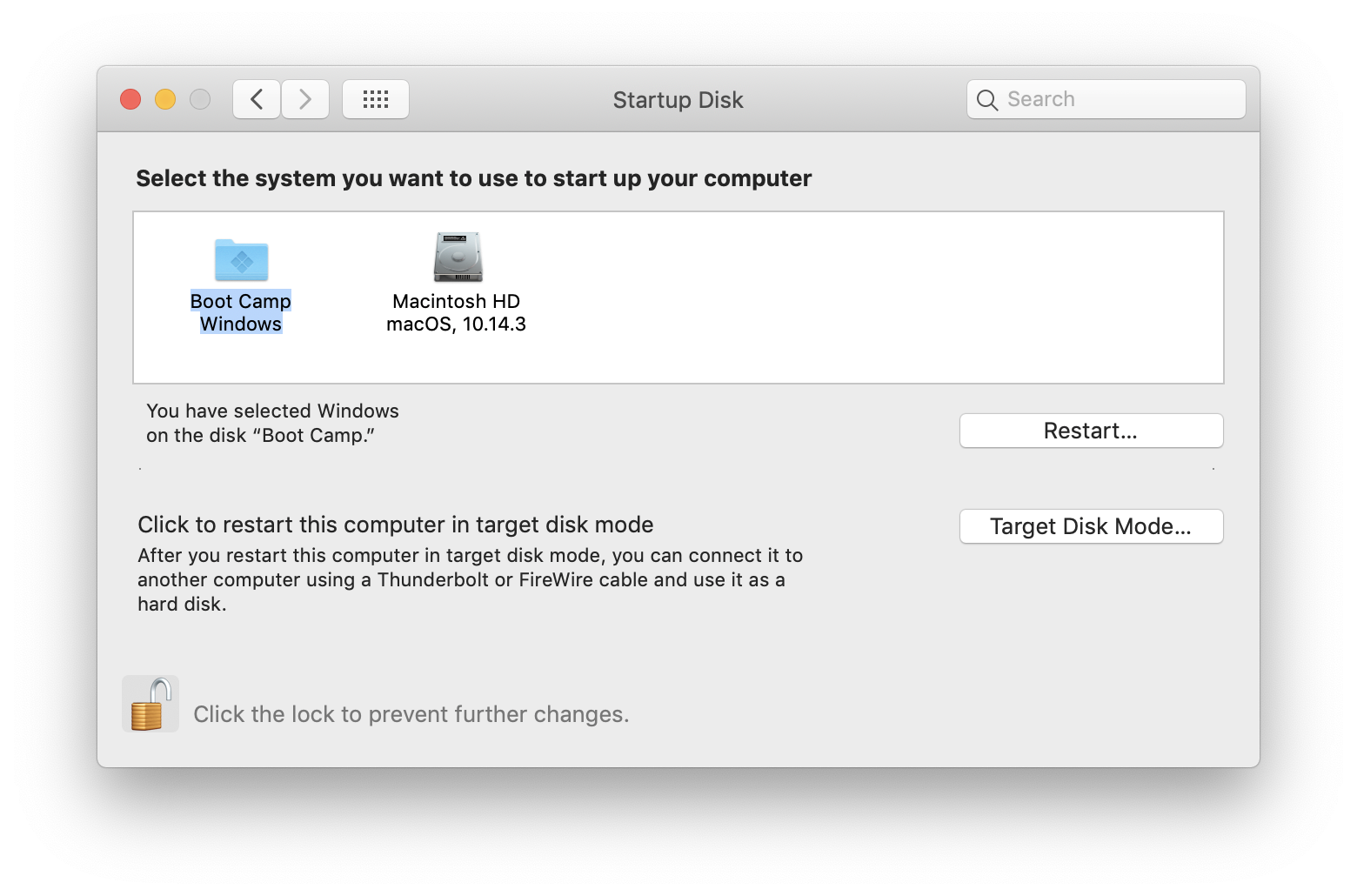
Finishing up
That's it! Once the machine reboots you'll be presented with a Windows 10 install sequence. Follow the prompts like you normally would and you'll be able to run Windows 10 natively on your Mac. Here are some notes to follow up on.
- Once your windows installation is complete, remember to navigate into file explorer and install the Boot Camp drivers for your machine. That will setup your network card, display, and other Apple-centric devices. This will also install the Boot Camp program to help you reboot into macOS.
- If for some reason you have troubles, power down your Mac and simply detach your external drive. You should be able to simply reboot into macOS.
- If that fails, hold Command-Option-P-R all at once and wait until you hear two chimes. Once done, you'll be able to boot back into macOS.
Final comments
Now you can run native Windows 10 and native macOS Mojave. The best of both worlds with little compromise. If you have any tips on getting this working in a better or faster way. Please let us know in the comments!

